Lenovo via eBay has
Lenovo Yoga 6 2-in-1 13.3" Laptop (82FN0032US) for
$799.99.
Shipping is free.
Lenovo via Newegg has
Lenovo Yoga 6 2-in-1 13.3" Laptop (82FN0032US) for
$799.99.
Shipping is free.
Thanks to community member
Suryasis for finding this deal.
Specs
- 13.3" 1920x1080 300 Nits IPS Touchscreen Display, 72% NTSC
- Ryzen 7 4700U 2GHz Processor (8C/8T, 4.1 GHz Boost, 12MB Cache)
- AMD VEGA 7 Integrated Graphics
- 16GB DDR4 3200 MHz Ram (Soldered, not upgradable)
- 1TB M.2 PCIe NVMe SSD
- Backlit Keyboard
- Fingerprint Reader
- 720P HD webcam /w Privacy Shutter
- Intel Wi-Fi 6 AX 200 2x2 + Bluetooth 5.0
- Ports:
- 2 x USB-A 3.2 Gen 1
- 1 x USB-C 3.2 Gen 1 (DisplayPort & Power Delivery)
- 1 x USB-C 3.2 Gen 1 (DisplayPort)
- 1x Headphone / mic combo
- 4-Cell 60 WHr Battery
- 2.91 lbs
- Windows 10 Home 64 Bit
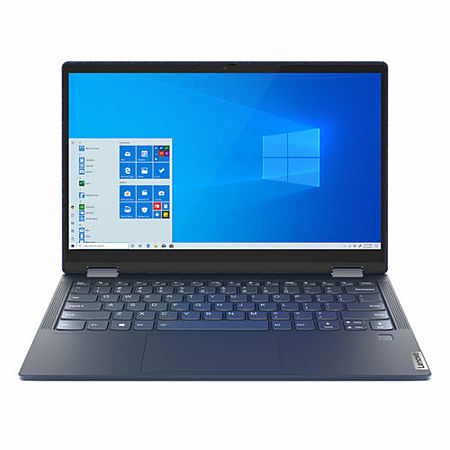
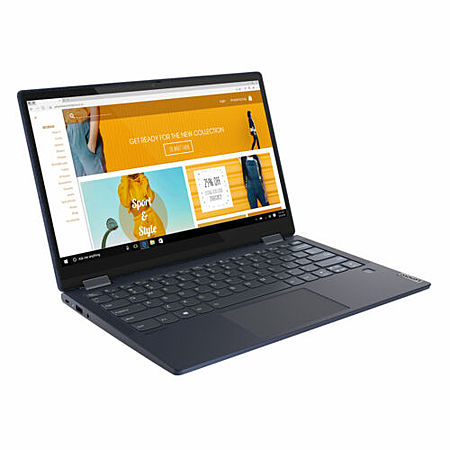
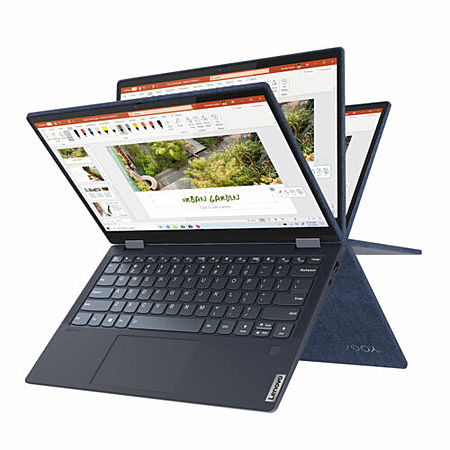
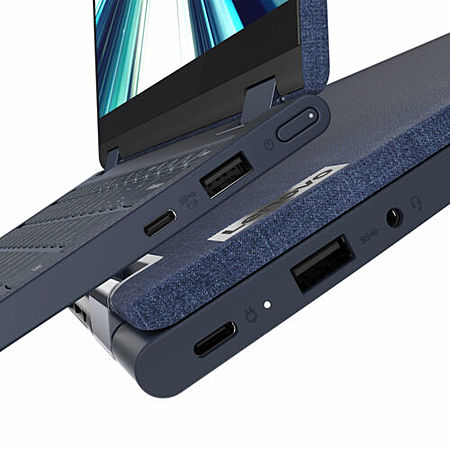
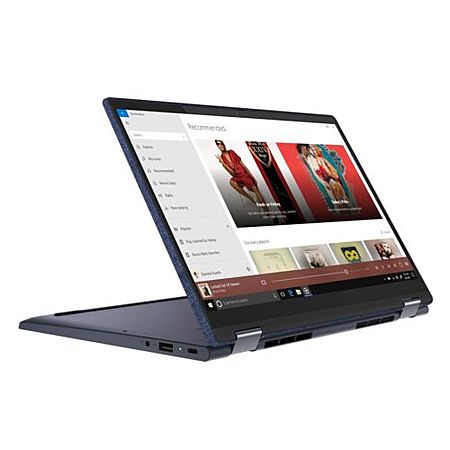
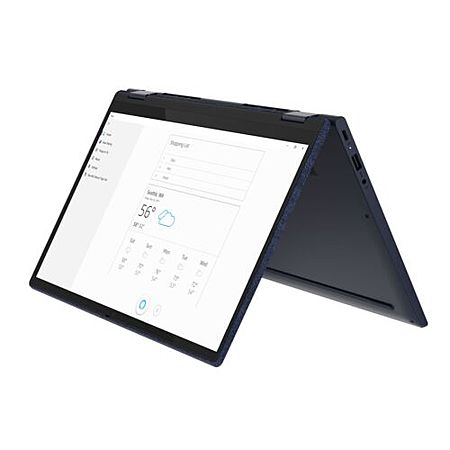




Leave a Comment
Top Comments
AMD is manufactured on TSMC's 7nm process, which is about 115 million transistors / mm^2.
Intel's 11th gen mobile processors are manufactured on Intel's 10nm process, which is about 100 million transistors / mm^2. So they're pretty competitive. Intel has the edge on single core instructions per clock, AMD has the edge on multi-core performance because they manage to pack in 6-8 cores vs Intel's 2-4 cores.
Intel's 11th gen desktop processors are still manufactured on Intel's 14nm process, which is about 37.5 million transistors / mm^2. They're having problems managing heat in their 10nm process, which is why they can't pack in more cores on their mobile processors. On their desktop, just the higher clock frequencies made their 10nm non-viable, and they had to fall back to manufacturing on 14nm. That puts them at a huge disadvantage against AMD.
And if you're curious, Apple's M1 is manufactured on TSMC's 5nm process (they bought out TSMC's entire 5nm capacity in 2020), which is about 175 million transistors / mm^2. So the architectures are probably all similar, and the performance differences we're seeing are mostly because of the different manufacturing processes. All the Intel, AMD, and Apple fanbois can go home - it's the manufacturing process which makes the biggest difference.
The dirty little secret of the laptop industry is that none of the big brand names actually make their own laptops. This includes Lenovo, Dell, HP, Asus, Acer, Apple, etc. They're all designed and made by Taiwanese companies called ODMs. Original Design Manufacturer - like an OEM except they also design the product. The brand name just slaps their label on it before selling it to you.
https://en.wikipedia.or
Most of the brands use multiple ODMs. So it's pointless to blacklist or whitelist a brand - there's almost no correlation between brand name and quality. A Lenovo model may actually have more in common with a Dell model (made by the same ODM) than with another Lenovo model (made by a different ODM). If you're curious, Apple's Macbooks are made by Quanta. But Quanta also makes laptops for all the other major brands, including Lenovo. All that fuss about Macbooks being better quality and having magical unicorn dust inside, is just marketing and selectively comparing your good model against someone else's bad model.
I'm pretty sure the Thinkpads are designed and built in-house though. When Lenovo bought the Thinkpad line from IBM, they also bought the building and employees in North Carolina where they were designed. And last I checked, Lenovo still owns that building.
71 Comments
Sign up for a Slickdeals account to remove this ad.
Edit: And actually, the configuration I'd been tracking only had a 512GB SSD, so this is an even better deal if you have use for the extra storage.
Sign up for a Slickdeals account to remove this ad.
Our community has rated this post as helpful. If you agree, why not thank Suryasis
Sign up for a Slickdeals account to remove this ad.
Literally just remove visibility of screen by 20-70% depending on your environment. horrible.
that goes for all glossy screens
Leave a Comment